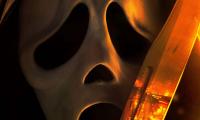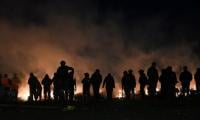Gangs’ car bombs rattle Montenegro’s capital
PODGORICA, Montenegro: Heavily-armed police are guarding the streets of Montenegro’s capital after a spike in gangland violence rattled the Balkan country, which is on the brink of joining Nato.
Drug mafia feuds began in the coastal towns of Bar and Kotor, hotbeds of organised crime, where anti-terrorist police swooped in to tackle the deadly rivalries last summer as tourists came and went on cruise ships.
But the troubles have come to the streets of the capital Podgorica in the past few weeks, with two people killed and two others seriously injured in three explosions.
"Recent events in Podgorica and events that preceded them in other towns have understandably provoked the anxiety of citizens, who expect the authorities to do all they can in a merciless struggle against organised crime," said Interior Minister Mevludin Nuhodzic.
He admitted that "in some way, order is threatened".
Twelve people were killed last year as a result of gang feuds in the country of 620,000 people, whose tourism sector is growing under the threat of powerful organised crime.
In one incident in September, a sniper shot a prisoner dead in broad daylight in a yard in Montenegro’s highest-security jail in Podgorica. The man had been jailed for extortion.
The recent spike in attacks has resulted in dismissals and resignations at the top of the police force and an intensified presence on the streets.
After nightfall for the past several days, heavily-armed officers have patrolled the squares of the capital, closely monitored customers in bars and cafes and carried out tight security checks on cars.
So far they have seized several guns, drugs and one vehicle, but no arrests over the Podgorica blasts have been announced.
Residents of the capital fear becoming collateral damage of the warring gangs.
"This has crossed all limits... the whole society is descending into the underworld. I am afraid of innocent people being killed," said Milos, 45, an economist who witnessed the latest blast in the centre of Podgorica on January 19.
A young man with a criminal record was killed in the explosion and the passenger in his car had to have her leg amputated.
Another resident in the capital, 47-year-old lawyer Ana, described the situation as "unbearable" and wondered "what has prevented the authorities from strengthening their fight against crime?"
Local people who spoke to AFP were reluctant to give their family names for security reasons.
Nuhodzic insisted the government was "taking permanent action. Our goal is to create insecurity for criminals".
But Nebojsa Medojevic, a leader of the main opposition Democratic Front alliance, said the security situation was "worrying" and that there was a "political character" to Montenegro’s organised crime.
"There are no boundaries between the state and crime," he told reporters on Friday.
Nato signed an accession agreement with Montenegro last year, paving the way for the country to become the 29th member of the Western military alliance.
So far more than 20 of the 28 Nato allies have ratified the accession of the former Yugoslav republic, which is also a candidate for European Union membership.
But mountainous Montenegro, which declared independence from Serbia in 2006, has struggled to contain the widespread scourge of organised crime and related violence. The EU regularly urges authorities to do more.
Last summer, dozens of anti-terrorist police descended on the medieval fortress town of Kotor, a popular tourist destination on the Adriatic coast, after a string of public shootouts between rival drug-trafficking gangs.
Nine men were later arrested over the violence.
Montenegro’s veteran leader Milo Djukanovic stepped down after his party only narrowly topped an election in October, handing the prime ministership to a close ally. But many Montenegrins still see Djukanovic as the real boss.
The former PM, who led the country towards closer ties with the West, is accused by critics of links to organised crime, which he denies.
On election day authorities arrested of a group of Serbians whom they accuse of plotting to seize parliament and assassinate Djukanovic.
-
 'Bridgerton' Season 4: Showrunner Talks About Violet's Steamy Romance
'Bridgerton' Season 4: Showrunner Talks About Violet's Steamy Romance -
 John Tesh Recalls ‘uncomfortable’ Backlash Over ’70s Romance With Oprah Winfrey
John Tesh Recalls ‘uncomfortable’ Backlash Over ’70s Romance With Oprah Winfrey -
 Meghan Markle, Prince Harry Problem Was Not ‘work’ During Time With Royals
Meghan Markle, Prince Harry Problem Was Not ‘work’ During Time With Royals -
 Meta Strikes Multi-billion-dollar AI Chip Deal With Google: Will The New Collaboration Pay Off?
Meta Strikes Multi-billion-dollar AI Chip Deal With Google: Will The New Collaboration Pay Off? -
 Gracie Abrams Breaks Silence After Losing 2026 BRIT Award
Gracie Abrams Breaks Silence After Losing 2026 BRIT Award -
 Deon Cole Takes Swipe At Nicki Minaj In Mock Prayer During NAACP Image Awards Monologue
Deon Cole Takes Swipe At Nicki Minaj In Mock Prayer During NAACP Image Awards Monologue -
 Jennifer Garner Reveals The Actress Who 'carried Through Things'
Jennifer Garner Reveals The Actress Who 'carried Through Things' -
 Shamed Andrew ‘awful’ Time As Trade Envoy Is Laid Bare By Insider
Shamed Andrew ‘awful’ Time As Trade Envoy Is Laid Bare By Insider -
 Belgium Seizes Suspected Russian Shadow Fleet Tanker
Belgium Seizes Suspected Russian Shadow Fleet Tanker -
 Liza Minelli Makes Bombshell Claim About Late Mother Judy Garland’s Struggle With Drugs
Liza Minelli Makes Bombshell Claim About Late Mother Judy Garland’s Struggle With Drugs -
 Shipping Giant Maersk Halts Suez Canal, Bab El-Mandeb Sailings Amid Escalating Conflict
Shipping Giant Maersk Halts Suez Canal, Bab El-Mandeb Sailings Amid Escalating Conflict -
 Matthew McCoughaney Reveals One 'gift' He Achieved With Losing Nearly 50 Pounds
Matthew McCoughaney Reveals One 'gift' He Achieved With Losing Nearly 50 Pounds -
 'Scream 7' Breaks Box Office Record Of Slasher Franchise: 'We Are Grateful'
'Scream 7' Breaks Box Office Record Of Slasher Franchise: 'We Are Grateful' -
 Bolivian Military Plane Crash Death Toll Rises To 20
Bolivian Military Plane Crash Death Toll Rises To 20 -
 'Sinners' Star Blasts Major Media Company For 2026 BAFTAs Incident
'Sinners' Star Blasts Major Media Company For 2026 BAFTAs Incident -
 Inside Scooter Braun, Sydney Sweeney's Plans To Settle Down, Have A Baby
Inside Scooter Braun, Sydney Sweeney's Plans To Settle Down, Have A Baby



